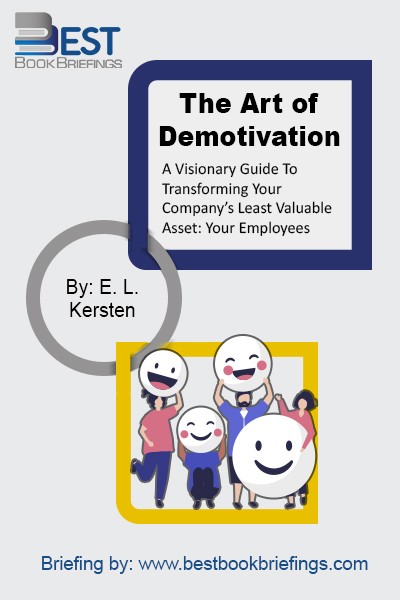The 7 Hidden Reasons Employees Leave
How to Recognize the Subtle Signs and Act before It’s Too Late
Editorial Review
Based on research performed by the prestigious Saratoga Institute, The 7 Hidden Reasons Employees Leave provides readers with real solutions for the costly problem of employee turnover. Readers will learn how to align employee expectations with the realities of the position, avoid job–person mismatches, and provide feedback and coaching that breed employee confidence. The book examines factors such as manager relationships, lack of trust in senior leadership, company culture and integrity, salary and benefits, and more—revealing what can be done to hold on to the people who provide the most value to the organization.
Book Reviews
Books on Related Topics

In this book we get to know that human assets aren’t a part of a business. If you take away the human assets, you don’t have a business, just a bunch of offices and equipment that can’t do anything. Businesses are people–irrational, emotional, unpredictable, creative, oddly gifted, and sometimes ingenious people

Employees are the engine that keeps companies running. And healthy employees, who are emotionally, mentally, and physically prepared to take on whatever challenge is in front of them, are more likely to make the companies they work for grow and flourish. Seems pretty simple, right? So why are most workplaces so

In the early 1960s, Douglas McGregor defined contrasting assumptions about the nature of humans in the workplace. These assumptions are the basis of Theory X and Theory Y teachings. Theory X assumes that people are lazy and will avoid work whenever possible. Theory Y, on the other hand, assumes that people

Using real-world inspirational examples from Marriott, Accenture, McKinsey & Company, LinkedIn, and many more, The Mind of the Leader shows how this new kind of leadership turns conventional leadership thinking upside down. It represents a radical redefinition of what it takes to be an effective leader--and a practical, hard-nosed solution to

Peek out your office door and take a good look at your employees. With the exception of a few royal pains, you've got a nice group of people. By and large, they do good work, they get along with you and one another and they're generally well intentioned. But, are they

Building a Magnetic Culture explains what engages and motivates employees and how to create an environment in which employees can thrive. Drawing on years of research and real-world examples from his consulting experience, the author gives you the strategies and tactics you need to transform your company by creating and sustaining

Six Sigma black belts around the world have gotten good at improving four of the root causes of quality defects, machines, materials, measurement, and methods, but there is another root cause identified in the Six Sigma methodology: people. This root cause has largely been ignored. This is not too surprising because

Evidence-based change is a mind-set and approach to making HR decisions. The thinking behind evidence-based change was inspired in part by the evidence-based movement in medicine. That movement came about after medical researchers noticed that doctors, despite a vast amount of available medical research, were treating disease in idiosyncratic ways. They



